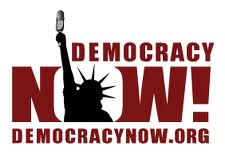The Atlantic Cities, March 4, 2013
The Institute for Local Self-Reliance recently compiled this map of all the communities in the country that control their own access to the Internet. At best count, there are about 340 of them with publicly owned fiber-optic or cable networks, serving either all or parts of town. In these places, those residents and businesses served don’t have to spar with telecom giants like AT&T and Comcast. They get their Internet instead – like many communities do their electric utility – straight from the city.
The red states on the map have passed laws restricting the ability of local communities to build their own networks (primarily with the pressure of telecom lobbyists). And, at first blush, it’s striking that a state like Texas has almost no municipal broadband. But this picture also reveals another curious contrast.
“The interesting thing about the map is how few big cities are on it,” says Christopher Mitchell, who directs the Telecommunications as Commons Initiative at the institute. In fact, the largest city on this map is Chattanooga, where a two-year-old citywide fiber network serves about 170,000 households. The next biggest city is Lafayette, Louisiana, home to about 120,000 people. From there, this movement drills down into intimate communities of just tens of thousands of residents, or less.
The most interesting differences on the map, Mitchell says, aren’t between all those un-served swathes of the Great Plains and fiber-dense clusters of Tennessee; they’re between Knoxville and Chattanooga. Or between Chattanooga and any number of cities much larger than it. Mitchell points to stories like this one with small business owners in places like Knoxville lamenting the low speed and high cost of doing business outside of Chattanooga now. Cities with networks like the one they’ve built will inevitably lure jobs.
For just this reason, some larger metros are starting to flirt with the idea of municipal broadband, with public-private partnerships. “Seattle and Chicago are looking around and basically saying, ‘If we’re the last ones to get really high-quality access to the internet, then we’re really going to be screwed,'” Mitchell says. So why aren’t big cities like Seattle, Chicago or Philadelphia already in this game when 340 smaller communities are?
“I feel like big cities have this arrogance,” Mitchell says. “They thought, ‘We’re so great, we are so cosmopolitan.’ They never thought they’d have to worry about competing with Chattanooga over jobs.”
Comcast and AT&T don’t really care about Chattanooga. They care a lot about Philadelphia.
For the most part, cities have been better served by telecom giants than many smaller communities (although there are plenty of urban pockets with poor Internet service). Big cities haven’t been forced to build their own networks in the way some rural mountain towns have. But Mitchell also chocks up the difference to what he calls “a matter of sociology:” namely, that there’s a lot less trust in government and connection to elected officials in large cities, a necessary ingredient when you’re talking about building an entirely new public utility. In Tennessee, on the other hand, most households have been familiar with the notion of government-run utilities since the construction of the TVA.
Try talking about municipal broadband in a big city where the common sentiment is that City Hall can’t even collect the trash right, and Mitchell adds, “it’s a lot easier for a big cable company to sow doubt and to scaremonger.”
Overpriced, unreliable Internet access is also the least of a big city’s concerns. And it’s a problem that impacts individuals and small businesses more than mega-employers. Large corporate offices often own their own fiber routes; they’re not buying service from AT&T. “If I’m an employer with 100 jobs in Seattle, the mayor probably doesn’t hear from me very often,” Mitchell says. “If I’m an employer with 100 jobs in Cedar Falls, Iowa, I probably know the mayor, and if I have a concern, the mayor’s going to listen to me.”
He predicts that it would be incredibly hard for Washington or Chicago to do what’s been done in Chattanooga. In addition to the trust deficit, the price tag to construct a network is much larger in those places, easily running into the hundreds of millions of dollars. That’s a lot, Mitchell concedes – “until you think about a sports stadium or a bridge.”
Or until you start to think about the money cities spend handing out tax incentives to lure companies and jobs to town. Cheap, high-speed Internet would encourage companies to relocate, too. And if those firms ever went bust, or decided to leave town (for, say, more tax breaks elsewhere), at least the city would still be left with an invaluable long-term piece of infrastructure.
In big cities, there’s also one other obvious obstacle to municipal broadband: Current providers like Comcast will be heavily motivated to fight for their hold on the market. “Comcast and AT&T don’t really care about Chattanooga,” Mitchell says. “They care a lot about Philadelphia. That’s where they do their best business.” Big cities are where telecoms make their highest returns selling service to densely clustered customers on fixed infrastructure.
But if places like Chicago and Philadelphia started to make more noise about investigating their own publicly owned Internet alternatives, that might begin to change your relationship with your existing provider.
“Boston has been really upset about Comcast, and Comcast hasn’t been all that concerned,” Mitchell says. “The cable companies would have to really think that they’re threatened. For most part, I think cable companies assume that big cities are not going to do anything meaningful. I think that’s a smart assessment, unfortunately.”





